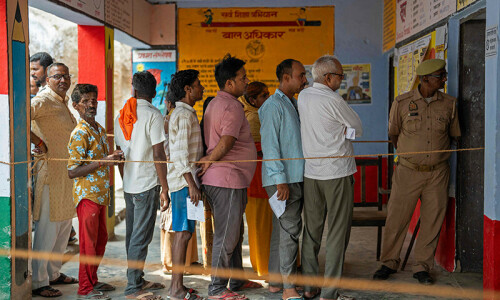WASHINGTON: The executive board of the International Monetary Fund (IMF) completed the eleventh review of Pakistan’s economic performance on Monday, enabling the immediate disbursement of $501 million to the country.
A statement issued by the IMF headquarters in Washington said the latest disbursement brought total disbursements to about $6.01 billion, under a three-year programme supported by an Extended Fund Facility (EEF) arrangement.
On Sept 4, 2013, the executive board had approved the 36-month extended arrangement under the EFF totalling $6.64bn. This was 216 per cent of Pakistan’s current quota at the IMF.
Earlier this year, a senior IMF official said Pakistan would be ready to go it alone when the IMF programme ends in September.
In Sept 2013, the executive board approved the 36-month extended arrangement under the EFF totalling $6.64bn
Masood Ahmed, director of the IMF’s Middle East and Central Asia department, said the country had made substantial progress in repairing its economy and that the Pakistani government was right in saying it did not need another package.
“They have built up their reserves, they have halved their budget deficit, their growth rate is pretty much the highest of all the countries in the region broadly defined,” he said. “They have completed to a large measure the stabilisation agenda that this programme was supporting.”
The IMF, however, advised Pakistan to continue the reforms introduced during its engagement with the Fund as those reforms had been good for the economy.
The IMF particularly stressed the need for retaining the structural measures introduced during the programme, saying those measures would sustainably raise the growth rate, particularly their exports.
The Fund reminded Pakistan that the current exports of $25bn were not enough for an economy of over $280bn and the country should aim to double that.
A recent IMF study also reminded Pakistan that it could double its tax revenues by making concerted efforts to broaden tax bases, strengthening tax compliance and rationalising the tax system in an efficient and equitable manner.
The study — “Unlocking Pakistan’s Tax Revenue Potential” — noted that Pakistan’s tax system did not promote efficiency and fairness and was complex and fragmented.
It also noted that while Pakistan’s Constitution assigns significant revenue responsibility to the provinces, provincial governments’ own revenues contribute only 6.8pc of total tax revenues.
Published in Dawn, June 28th, 2016













































